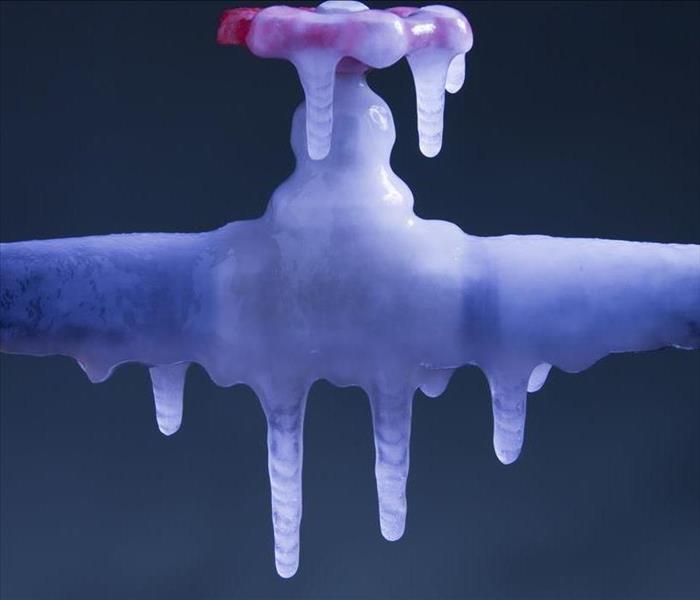Preventing Household Winter Water Damage
1/23/2022 (Permalink)
 With our vast commercial and residential water damage restoration capabilities, you'll never have to ask yourself who to call again!
With our vast commercial and residential water damage restoration capabilities, you'll never have to ask yourself who to call again!
No matter the season somehow water can always find a way to damage properties. During the cold season, uninsulated pipes can freeze and burst, ice dams can cause roofing issues, and thawed snow can enter basements. Read the blog below to see what you can do as a property manager to prevent winter water damage.
Prevent Frozen Pipes
- Insulate all water pipes in unheated areas whether its a crawl space, under the kitchen, in the basement, or behind bathroom cabinets.
- Ensure that you leave your home at an adequate temperature if you leave for an extended period of time. If you're nervous about the functionality of your heating system, a trusted person should check on your home once a week.
- Running a trickle of water through pipes will help prevent them from freezing. Although this is not a long-term solution, it can help save your pipes from bursting in a pinch.
Preventing Ice Dams
- Keep the snow on your roof under 15 centimeters. To remove snow from the roof, use a roof rake or long-handled brush to avoid using a ladder.
- Insulate your attic to prevent warm air from melting snow on your roof. If water is melting and then freezing, it can cause ice dams to form at the edge of your roof.
- Install a water membrane underneath the roof shingles to help prevent water from seeping in.
General Winter Water Damage Safety Tips
- Place a water leak detector near high risk areas such as on sump pumps, near water-bearing fixtures, and around pipes.
- Check your water supply lines annually for leaks. Appliances such as the hot water heater, washing machine, and refrigerator will have these supply lines.
- Disconnect your outdoor hoses. This will prevent water from getting into the line and creating a blockage which in turn can cause backflow.

 24/7 Emergency Service
24/7 Emergency Service